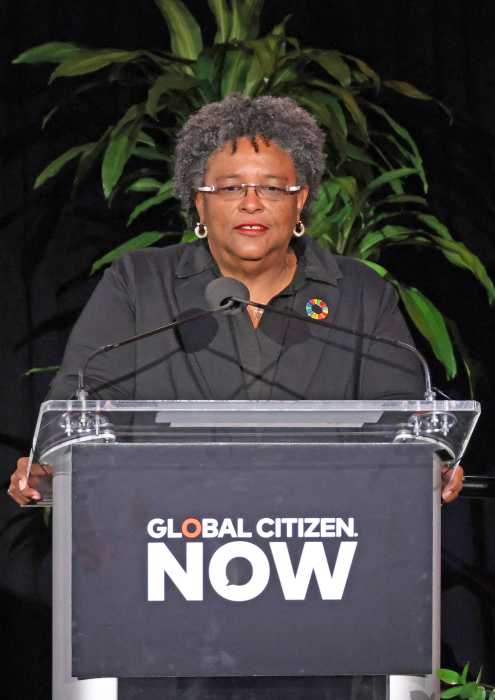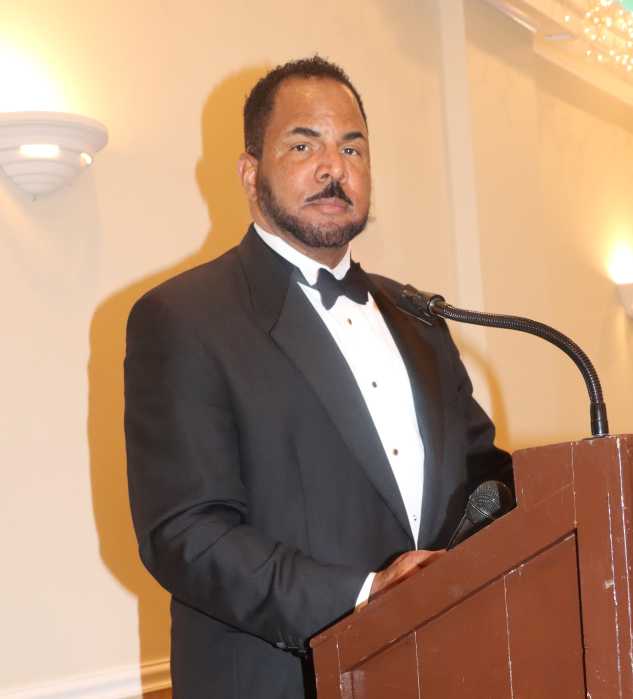Barbados
The International Monetary Fund (IMF) has given Barbados top marks for its efforts to restructure the economy under its Barbados Economic Recovery and Transformation (BERT) plan which was approved by the Washington-based lending agency.
Two months after the IMF approved US$290 million loan for the country under the Extended Fund Facility (EFF) an IMF team that visited the island said Barbados “has made an excellent start in implementing its ambitious and comprehensive economic reform program.
It said Barbados has also made good progress towards meeting end-December 2018 structural benchmarks under the EFF… The country’s international reserves which reached a low of US$220 million (5-6 weeks of import coverage) at end of May 2018, have more than doubled since then, amounting to more than US$500 million in early December.
This has helped to rebuild confidence in the country’s macroeconomic framework, said Head of the Mission Beet Van Selm in a statement.
Caribbean
The Pan American Health Organization (PAHO) has called on governments to work together to find solutions that will ensure that all people in the Caribbean and elsewhere have access to quality health services, without having to endure financial hardship.
PAHO said one third of the population of the Region of the Americas, including the Caribbean, lacks access to comprehensive health services.
This is due to several barriers, including geographical, financial and institutional factors, as well as stigma and discrimination and the “fragmentation and segmentation of health systems and services all hinder or exclude people from accessing care in the region.”
Dr. James Fitzgerald, Director of the Department of Health Systems and Services at PAHO, said the countries of the region are committed to ensuring health for all people and know that building health services that are based on primary health care remains fundamental to advancing universal health.
Dominica
Dominica has called on Israel to assist the Caribbean Community (CARICOM) with research on marijuana as the region is moving to decriminalize the drug for medicinal and other purposes.
The country’s president Charles Savarin said that there have been calls in the region from various stakeholders for legalizing marijuana for several uses.
He said in response to those calls the CARICOM heads of government mandated the establishment of a Commission to undertake national consultations in member states to harness the views of the public across the CARICOM region.
Savarin in accepting the credentials of the new Israeli ambassador to Dominica, Danny Biran Bayor, said that the national consultation has started in Dominica and it is hoped that the CARICOM public will favor an approach that is grounded to comprehensive research, objective and honest evaluation.
The president said he has taken note that Israel holds the distinction “of having a most advanced and most successful cannabis program in the world.”
He said the cannabis is used to treat such ailment as cancer, Parkinson disease, multiple sclerosis and other chronic and post dramatic stress disorders.
The Israeli diplomat in his brief address promised that his country would continue to assist in the rehabilitation of Dominica following the passage of Hurricane Maria last year.
Grenada
Police in Grenada have declared a zero-tolerance policy against the use of pyrotechnic material such as firecrackers, scratch bombs, sparkles and other explosives during the Christmas season and are warning that the relevant authorities will be intensifying their monitoring policies regarding the importation of the items.
The police said they would be “intensifying security measures aimed at stemming the illegal and indiscriminate use of these explosives and will take a zero-tolerance approach against offenders in possession of these explosives.”
The authorities warn that anyone breaking the law will be liable to a fine of EC$5,000.
In a separate statement the Customs Department said it was also reminding importers that there are restrictions regarding the importation of blasting powders, detonators and high explosives of any description.
Jamaica
The Jamaica government has failed to get support to extend the state of emergency (SoE) in place since January 2017, after the opposition voted against the measure the government said was necessary to curb crime and violence across the island.
Jamaica Opposition Leader Dr. Peter Phillips said there is no need for a state of emergency to feel safe as 20 members of the main opposition People’s National Party (PNP) voted against the move.
The ruling Jamaica Labor Party government needed a two-thirds majority to give effect to give effect to the extension of the SoE, with all 33 government legislators voting in favor following a lengthy debate to extend the measure by three more months.
Prime Minister Andrew Holness during his contributing pleaded with the opposition to support the crime-fighting initiative, noting that 20 percent reduction in murders island-wide and, in some areas like Montego Bay, 70 percent, among the positive results.
Opposition leader Dr. Peter Phillips said that the legal opinion is that the SoE could be unconstitutional, as well as a report by the public defender, which indicated that only four percent of the nearly 4,000 people detained by the security forces have been charged with any serious crimes.
Phillips said for too many years the security forces have pursued a model of policing that has been “abusive of the basic rights and dignity of the ordinary Jamaican.”
The SoE had been imposed in several areas, including St. James, Kingston Western, Kingston Central and St. Andrew South, as well as St. Catherine North.
Attorney General Marlene Malahoo Forte told legislators that she was saddened that the opposition would not support an extension of the security measure.
St. Lucia
Chairman of the Cannabis Movement, Andre “Pancho” de Caires has rejected a historic bill decriminalizing ganga for medicinal and scientific purposes in St. Vincent and the Grenadines, stating that it is not for St. Lucia.
According to de Caries the organization looked at St. Vincent’s marijuana bill before it was tabled in Parliament.
“We reject that bill whole heartedly,” de Caries stated, adding that there are lot of flaws.
He said the bill is not something that would really benefit the farmers of St. Lucia.
He said what is needed in St. Lucia is a measure that would create a path to upward mobility for the people who have been brutally, unfairly jailed and discriminated against because of cannabis.
The Cannabis Movement chairman said once people move away from the lower end of the society into the middle class, crime will go down.
Trinidad
For the second time in the history of Trinidad and Tobago the murder toll has reached over 520 so far for the year.
The last time this occurred was in 2009, and the end of that year the murder figure was 509. The current homicide rate is heading for a second record. The highest ever murder rate was 550 some 18 years ago.
Newly appointed Commissioner of Police Gary Griffith said the end result after putting immense resources and policies both in law enforcement and social avenues to turn youths away from violent crime can be 150.
He said all aspects of gang activity must be totally eliminated, which would take several years.
Reaching 500 homicides, he noted, is the most unacceptable milestone that any country can acquire adding “if anyone thinks that it can be changed to 250 in a few months, they are wrong.”
Griffith said over the last few months there has been a gradual decrease in homicides in comparison to the same period last year and their earlier part of this year, but he does not in any way see this as success.
— Compiled by Azad Ali

























